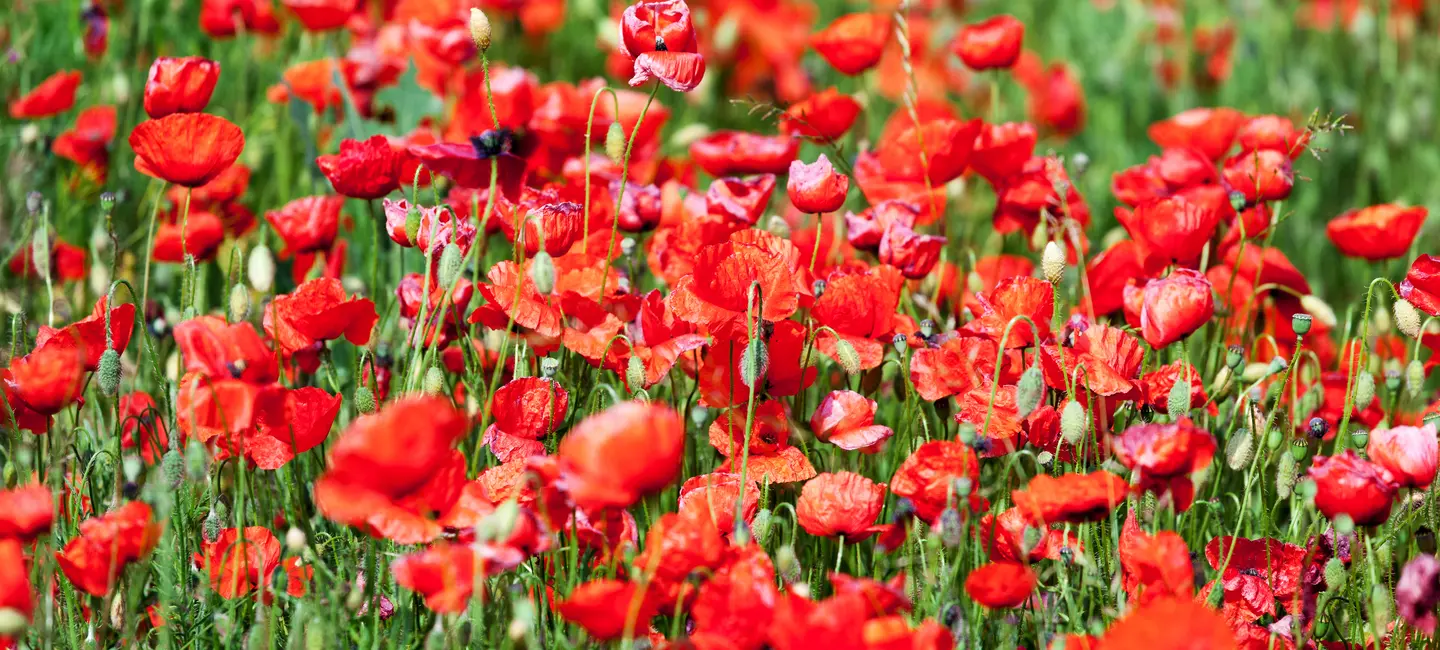
Corn poppy (Papaver rhoeas) is a plant with bright red flowers. The dried flower petals are used in foods in the Mediterranean, and also as medicine.
Corn poppy flower petals contain chemicals that can cause sleepiness. They can also have antioxidant effects. The petals also contain minerals, including potassium, zinc, copper, and iron.
People use corn poppy for cough, insomnia, pain, withdrawal from heroin, morphine, and other opioid drugs, and other purposes, but there is no good scientific evidence to support these uses.
Don't confuse corn poppy with poppy seed or California poppy. These are not the same.
Is It Effective?
There is interest in using corn poppy for a number of purposes, but there isn't enough reliable information to say whether it might be helpful.
Is it Safe?
When taken by mouth: Dried corn poppy flower petals are possibly safe. But consuming large amounts of corn poppy flower petals (over 250 grams) is possibly unsafe. Large amounts might cause nausea, vomiting, seizures, changes in heartbeat, and fainting.
Special Precautions & Warnings:
Pregnancy and breast-feeding: There isn't enough reliable information to know if corn poppy is safe to use when pregnant or breast-feeding. Stay on the safe side and avoid use.
Children: The FRESH leaves and blossoms of corn poppy are possibly unsafe when taken by mouth in children. They might cause side effects such as vomiting and stomach pain. There isn't enough reliable information to know if DRIED corn poppy flowers are safe for children.
Sedative medications (CNS depressants)
Interaction Rating=Moderate Be cautious with this combination.
Corn poppy might cause sleepiness and slowed breathing. Some medications, called sedatives, can also cause sleepiness and slowed breathing. Taking corn poppy with sedative medications might cause breathing problems and/or too much sleepiness.
Herbs and supplements with sedative properties: Corn poppy might cause sleepiness and slowed breathing. Taking it along with other supplements with similar effects might cause too much sleepiness and/or slowed breathing in some people. Examples of supplements with this effect include hops, kava, L-tryptophan, melatonin, and valerian.
There are no known interactions with foods.
There isn't enough reliable information to know what an appropriate dose of corn poppy might be. Keep in mind that natural products are not always necessarily safe and dosages can be important. Be sure to follow relevant directions on product labels and consult a healthcare professional before using.
Amapola, Common Poppy, Copperose, Coquelicot, Corn Rose, Cup-Puppy, Field Poppy, Flanders Poppy, Grand Coquelicot, Headache, Headwark, Lalpost, Papaver rhoeas, Pavot Coquelicot, Pavot des Moissons, Pavot Rouge, Ponceau, Rakta Posta, Rakta-Posta, Rakta Khakasa, Red Poppy, Rhoeados Flos, Shirley Poppy.
Information on this website is for informational use only and is not intended to replace professional medical advice, diagnosis, or treatment. While evidence-based, it is not guaranteed to be error-free and is not intended to meet any particular user’s needs or requirements or to cover all possible uses, safety concerns, interactions, outcomes, or adverse effects. Always check with your doctor or other medical professional before making healthcare decisions (including taking any medication) and do not delay or disregard seeking medical advice or treatment based on any information displayed on this website.
© TRC Healthcare 2024. All rights reserved. Use and/or distribution is permitted only pursuant to a valid license or other permission from TRC Healthcare.
